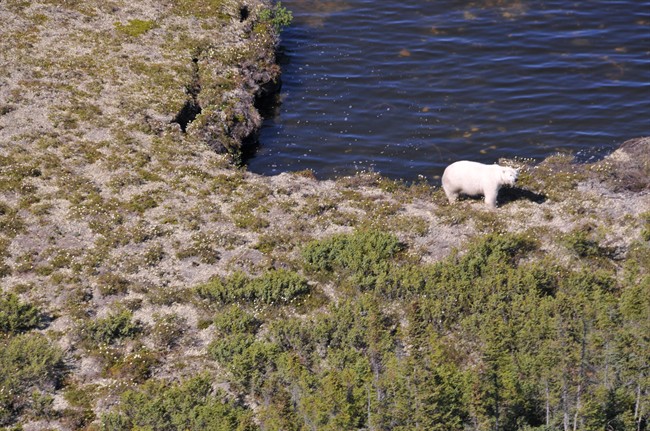Conservation officers find more polar bear dens near Manitoba-Ontario boundary
Advertisement
Read this article for free:
or
Already have an account? Log in here »
We need your support!
Local journalism needs your support!
As we navigate through unprecedented times, our journalists are working harder than ever to bring you the latest local updates to keep you safe and informed.
Now, more than ever, we need your support.
Starting at $15.99 plus taxes every four weeks you can access your Brandon Sun online and full access to all content as it appears on our website.
Subscribe Nowor call circulation directly at (204) 727-0527.
Your pledge helps to ensure we provide the news that matters most to your community!
To continue reading, please subscribe:
Add Brandon Sun access to your Free Press subscription for only an additional
$1 for the first 4 weeks*
*Your next subscription payment will increase by $1.00 and you will be charged $20.00 plus GST for four weeks. After four weeks, your payment will increase to $24.00 plus GST every four weeks.
Read unlimited articles for free today:
or
Already have an account? Log in here »
Hey there, time traveller!
This article was published 20/08/2012 (4883 days ago), so information in it may no longer be current.
WINNIPEG – Manitoba conservation officials have stumbled across a pleasant surprise — a large number of polar bear dens along the Hudson Bay coast near the Ontario boundary.
The dens lie in an area southeast of Wapusk National Park and east of the Nelson River. It’s a region along the southern end of the polar bear’s range and not as well-known as Wapusk, Churchill and other areas to the north.
“We’ve always known that there are dens in there … but not to this extent,” said Daryll Hedman, the regional wildlife manager for northeast Manitoba.

“We have a fairly large number of denning females in there, equal to or even maybe surpassing Wapusk National Park, so it’s fairly exciting news.”
Female polar bears dig the dens in the ground to give birth. The discovery could be a sign that the polar bear population in the area is in good shape, at least for now. The province is beginning a three-year study to get more detail.
“‘For now’ might be a fair statement, but that ice-free period is getting longer each year.”
The area’s polar bears are threatened by a shrinking feeding season. The amount of time every year that ice covers that stretch of Hudson Bay, allowing the bears to hunt seals, has been reduced by three weeks. That makes it harder for female bears to gain enough weight to give birth.
Climate change is also affecting the permafrost the bears use for their dens. Dens do not collapse under permanently frozen ground, but scientists are worried warming temperatures will cause the permafrost to recede northward.
Not everyone agrees that polar bears are in trouble. The Nunavut government released a survey earlier this year that said Canada’s polar bear population hasn’t significantly declined in the last seven years as predicted.
The aerial survey estimated the western Hudson Bay bear population at around 1,000.
That’s about the same number of bears found in a more detailed study done in 2004. That study, which physically tagged the bears, predicted the number would decline to about 650 by 2011.
